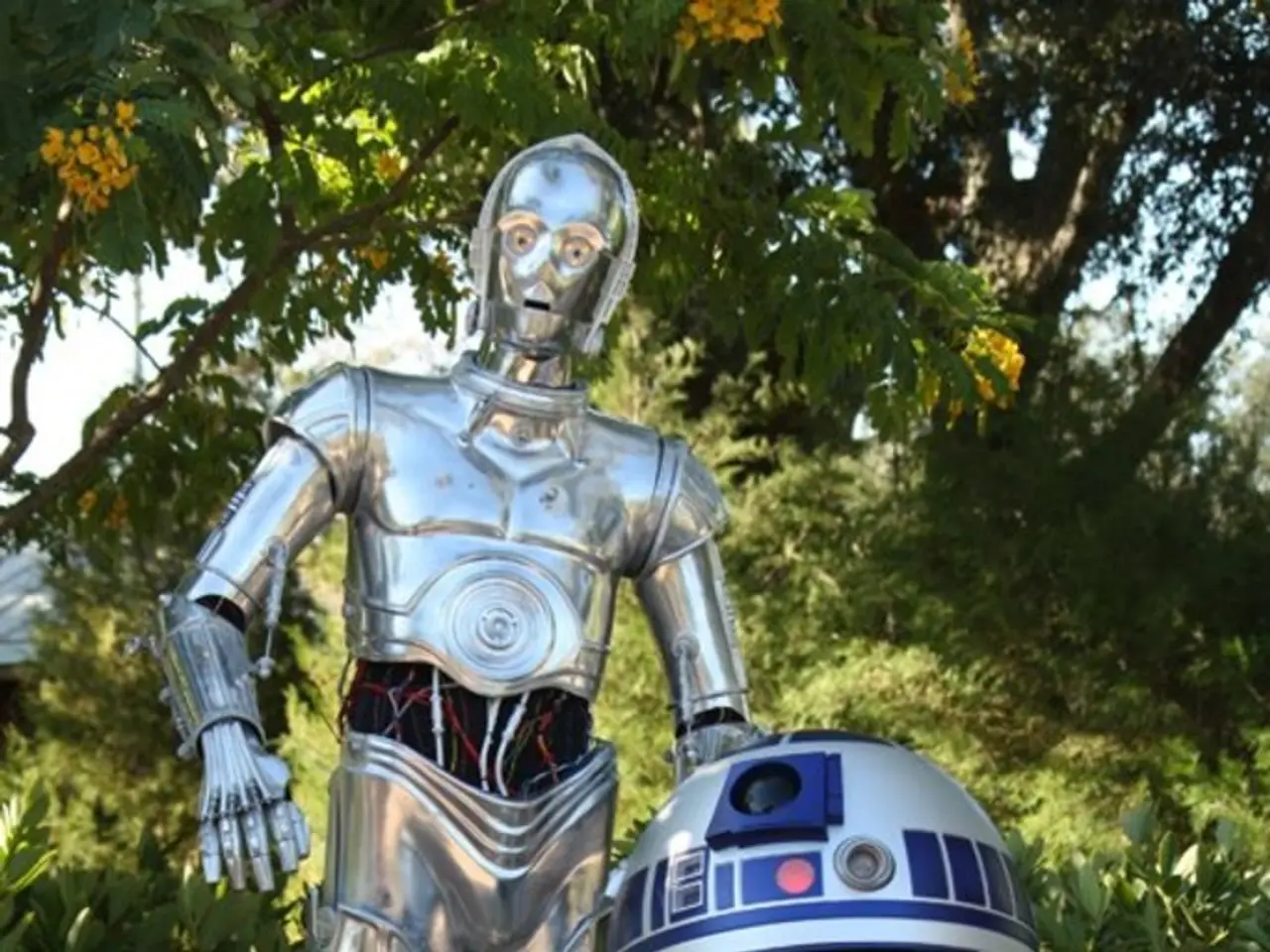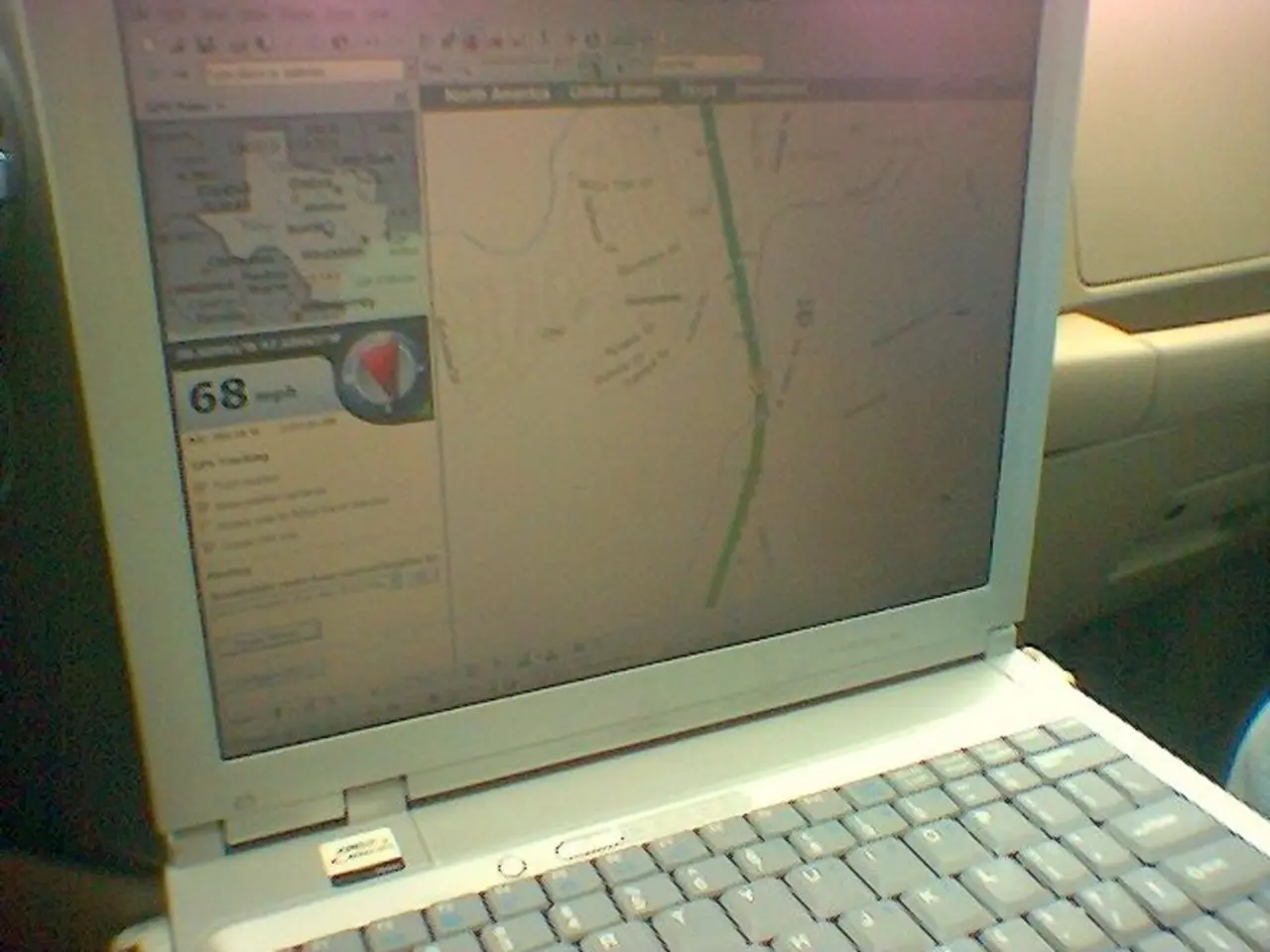Artificial intelligence takes over agricultural tasks, replacing weed killers and manual labor in farms.
A start-up named Aigen has made significant strides in the agricultural industry with its innovative robotic solution, Element. This solar-powered, AI-driven robot, designed for industrial weeding, is set to redefine farming practices and contribute to environmental conservation (1-4).
The Element robot, a large table-like structure equipped with solar panels and metal arms fitted with small blades for hoeing, navigates through crop fields autonomously, identifying and removing weeds without the use of herbicides (1-3). Aigen has successfully deployed these robots in tomato, cotton, and sugar beet fields, showcasing their versatility and practical application (1, 4).
Partnering with Bowles Farming in Los Banos, California, Aigen has demonstrated the robustness and field readiness of Element. The robots have proven to be effective even in harsh conditions, such as the intense midday heat (1, 4). The company's ongoing development is evident in the launch of next-generation Element robots, further cementing their presence in U.S. cotton farming (4).
Element addresses critical labor shortages in agriculture by replacing manual weeding tasks with autonomous robotic operation, reducing the reliance on scarce farm labor (1, 2). By eliminating the need for chemical herbicides, Element enhances crop safety and reduces farmers' costs related to chemical usage and labor (1, 2). This cost-saving and labor-reducing potential make it an economically attractive solution for modern farming operations.
Environmental conservation is another key benefit of Element. Its chemical-free weeding method significantly reduces the use of herbicides, helping to keep harmful chemicals out of food and minimising environmental contamination in soil and water (1, 2). Using solar power for energy makes Element an environmentally sustainable technology, reducing the carbon footprint associated with conventional farm machinery that often relies on fossil fuels (1, 2, 3).
AWS head of climate tech startups business development, Lisbeth Kaufman, has praised Aigen, stating that the company is going to be one of the industry giants in the future (5). Amazon Web Services recognised Aigen for its work addressing environmental issues, further validating the company's commitment to sustainable agriculture (6).
In conclusion, Aigen’s Element represents a technological breakthrough in autonomous, sustainable farming. It not only improves agricultural productivity by addressing labor shortages and reducing costs but also supports environmental conservation by eliminating chemical herbicides and utilizing renewable energy, aligning with global sustainable agriculture goals (1-4).
- Aigen's Element robot, a solar-powered and AI-driven solution, is expected to make a powerful impact in Malaysia's agricultural industry, bringing technological advancement and environmental conservation to domestic farming practices.
- The versatility of Element, demonstrated by its successful deployment in various crops like tomato, cotton, and sugar beet, indicates its potential applicability in diverse environmental conditions, such as those found in Malaysia.
- As Aigen continues to evolve its technology, the company's commitment to environmental conservation and sustainable agriculture has earned recognition from industry leaders like AWS, positioning Aigen as a potential global leader in this field.




